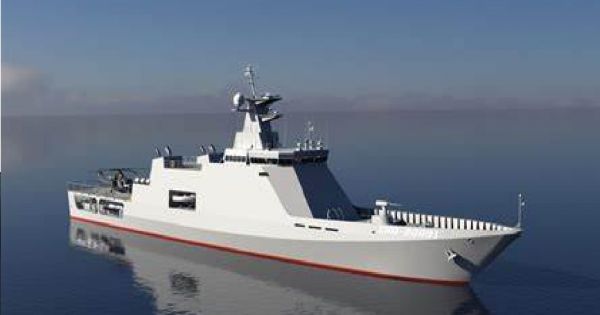Uruguay Advances OPV Construction with Spanish Shipyard

The Uruguayan government has taken a significant step in enhancing its naval capabilities by making an $8.4 million payment to the Spanish shipyard Cardama. This payment marks the first installment for the construction of two new ocean patrol vessels (OPVs). The agreement for these vessels was reached in July 2024, but the process has faced scrutiny and controversy. The decision to proceed with Cardama has raised questions, leading to the retirement of a high-ranking Uruguayan Navy official amid the ongoing debate.
Investment in Maritime Security
Uruguay’s Defense Minister, Armando Castaingdebat, emphasized the importance of these new vessels in addressing various security challenges. He stated that the OPVs would provide essential resources to combat issues such as drug trafficking, human trafficking, and illegal fishing. These challenges are particularly relevant given Uruguay’s geographical location and its borders with Argentina. The new vessels will enhance the country’s ability to patrol its waters and protect its natural resources.
The total cost of the contract with Cardama is reported to be €82 million. The funding for this project comes from the National Corporation for Development (CND) and General Revenue. The OPVs are designed to accommodate approximately 80 crew members and will have a displacement of 1,700 tons. With a length of 86.75 meters and a beam of 12.20 meters, these vessels will be capable of reaching speeds of up to 24 knots. Their armament will include a 30 mm bow cannon and 12.7 mm machine guns, making them well-equipped for various maritime operations.
Controversy Surrounding the Deal
Despite the potential benefits of the OPVs, the decision to contract with Cardama has not been without controversy. Admiral Gustavo Musso of the Uruguayan Navy requested to be relieved from active service, citing concerns about Cardama’s experience in constructing such vessels. Musso had previously recommended a different shipyard, raising questions about the selection process. His resignation highlighted the internal disagreements within the Navy regarding the procurement of the OPVs.
Additionally, the Uruguayan Senate’s Defense Committee received a letter from China’s Shipbuilding Trade (CTSC), which had also participated in the bidding process. CTSC questioned the final decision made by Montevideo, arguing that the specifications for the tender were not clearly defined. They claimed that the requirements were communicated informally, leading to confusion among bidders. This situation has prompted calls from some political figures, including former President José Pepe Mujica, for Uruguay to reconsider its choice and engage with the Chinese market, which he described as a diplomatic oversight.
As the construction of the OPVs progresses, the Uruguayan government faces the challenge of addressing these controversies while ensuring that the country’s maritime security needs are met effectively. The outcome of this deal will likely have lasting implications for Uruguay’s naval capabilities and its relationships with international partners.
